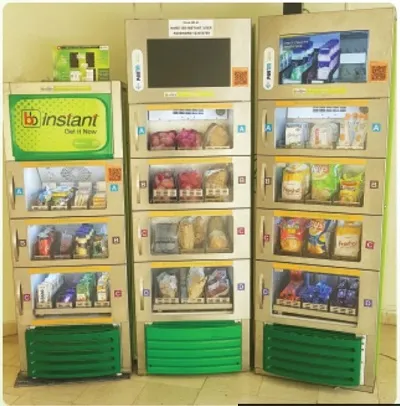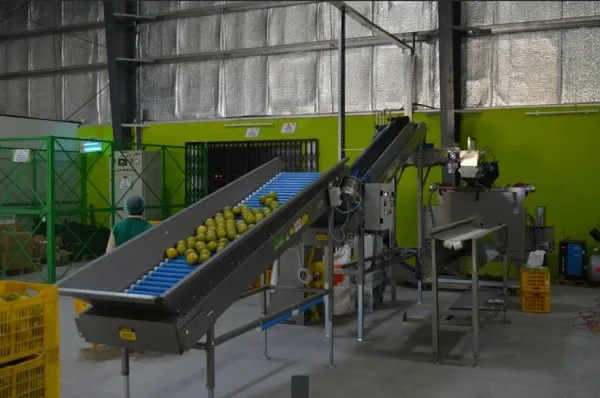Here’s how Alibaba-backed BigBasket will reach $1 billion in GMV in 2020
With a deep-pocketed strategic investor in its basket, BigBasket has stepped up investments and is focusing solely on scaling up.
While the hullabaloo in the media over the second half of last year was over the possibility of an Alibaba investment in BigBasket, in the company each team member knew exactly what they were working towards.
Goal one is to reach Rs 300 crore GMV a month in September; goal two is reach Rs 500 crore GMV a month in March 2019; and goal three to become a $1 billion-GMV company in March 2020.
To get there, BigBasket has identified a few key initiatives — from vending machines and subscription service to becoming the most preferred partner to farmers.
The Alibaba funding, which will help drive this growth, could not have come at a better time. The grocery segment is expected to be a growth driver for the ecommerce industry.
Large multi-category ecommerce marketplaces like Amazon and Flipkart have become more aggressive in this category in recent months — Amazon has launched grocery focused warehouses and opened up own dark stores for its hyperlocal grocery delivery service, Amazon Now, and Flipkart launched its grocery category, Supermart, late last year.
Grofers, the only other e-grocer that can be considered a significant competitor to BigBasket, has successfully transitioned from a hyperlocal delivery model to an inventory model and also recently received a $62 million funding from existing investors SoftBank and Tiger Global.
But the Alibaba investment took some time to materialise — over six months — waiting for a nod from the Competition Commission of India. The $300 million round, which saw participation from existing investors Sands Capital, International Finance Corporation, and Abraaj Group, has made Alibaba the single largest shareholder in BigBasket and was finally announced in February.
This money is only for growth. The backend is pretty much in place and is well oiled. Version 2.0 (of BigBasket) is all about growth. We want to pump in money into three things — marketing (across print, television and digital), infrastructure (scaling up warehouses, hubs, vans, people) and scaling up tech. All this to hit Rs 200 crore a month in September and Rs 500 crore a month in March 2019. It is so internalised in the company then everyone in the company knows this number and his share of that number,” says Hari Menon, Co-founder and CEO of the seven-year-old BigBasket that closed FY 2018 with a GMV of Rs 2,000 crore.

The company operates in 25 cities, including smaller cities like Surat, Mysore, and Coimbatore, and Hari says there is no intention to expand the number of locations — the growth from Rs 200 crore a month to Rs 500 crore a month in March 2019 will come from these 25 cities.
New models to reach customers
Data put out by advisory and research firm RedSeer Consulting shows that FMCG is the fastest growing category in ecommerce with a growth rate of 66 percent. However, its share of GMV is just six percent. The share of fresh fruits and vegetables within that will be miniscule.
However, grocery and FMCG are high repeat categories. Typically consumers in the offline world make a large monthly purchase made up mostly of non-perishables at the beginning of the month and supplement this with weekly or even daily purchase of perishables.
But, this pattern has not been replicated online yet. Hari says a customer on BigBasket orders three times a month on average. The goal is to increase this to five to six times a month on average.
To make this happen, BigBasket will need to provide more options to consumers and make purchasing more convenient. For this the company has piloted a new business model and will launch another this quarter.

The first is installing smart vending machines in apartment blocks. The pilot is already running in Bengaluru, covering around five apartment complexes. BigBasket has partnered with Fireside Ventures backed startup, Kwik24, the maker of the smart vending machine. For the residential complexes part, BigBasket has an exclusive tie up right now with the vending machines having only the e-grocer’s branding and products.
Consumers can access the vending machines with the BB Instant app at present. However, this will be integrated into the main BigBasket app eventually. Each vending machine has close to 40-45 SKUs, covering daily essentials like fruits, vegetables, bread, dairy and eggs, along with products like juices, soda and snacks. A consumer can choose the product from the app and add that to the basket, walk up to the vending machine that can be accessed by scanning a QR code, pick up the products she wants (even additional ones that the consumer hasn’t added to the cart), and the app charges the consumer (no CoD option here) as per the products she has picked up.
Hari reveals that the plan is to have at least 10,000 such machines across the country. BigBasket does not cover corporates at the moment, but is evaluating supplying fruits and vegetables that employees can pick up on their way out. The Kwik24 team has its machines in corporate organistions that consumers can access with the Kwik24 app.
The new business that will be launched this quarter is a subscription service driven by milk. This is directly linked to the objective of increasing frequency of orders. The consumer will have to order milk for next morning’s delivery, as it is an opt-in service. She will have the option to order for other essentials at that time. This service will also be available for specific apartment complexes.
Milk-based subscription services already exist. Doodhwala, Milkbasket and Supr Daily are some of the players in this space.
Hari says the company is preparing to build the operations ground up. While for BigBasket the supply chain is already in place, the company needs to get on board apartment complexes and launch a new delivery time slot of 6.30am to 8.30am. However, he says he is also open to an acquisition and is evaluating both options.
Private label scale up
BigBasket continues to rapidly scale up its private label portfolio. It launched a new label, GoodDiet, for the health conscious customer a few months back.
In fact, healthy foods will be a focus for BigBasket, especially from the private label perspective. “Our data shows that people are interested in the ingredients that go into a food product. We know that customers zoom in on labels,” says Hari.
The GoodDiet range is mainly superfoods like quinoa, black rice, buckwheat, chia seeds and organic amaranth. The e-grocer has also launched organic ghee and is working with the government of Karnataka on millet promotion.
BigBasket is set to launch gourmet products in categories like high-end sauces and snacks. The contribution of private label to revenue has grown from around 25 percent to 33 percent in FY 2018 year-on-year. The target is to increase this contribution to 40 percent this fiscal. BigBasket counts fresh fruits and vegetables under the private label as it brands them under Fresho brand.
Furthering infrastructure
Hari, who went to China mid-March to understand the Alibaba processes better, says the Chinese ecommerce giant is a great example of scaling right. “We need to learn about scaling from them. The scale they have is mind blowing. We will have teams working closely — across warehousing, supply chain and last-mile logistics and technology,” he says.
While the company does not intend to expand the number of warehouses and dark stores, each of these will become bigger.
Thanks to GST, BigBasket is now able to service Tier-I locations from the nearest large city across state lines. For instance, the Mumbai warehouse services Bhopal and Indore. In the pre-GST days this was expensive, as additional state taxes would apply.
The company has also invested in tech to make delivery more efficient. For instance, the temperature of the chill boxes in the delivery vans can be remotely monitored, as they are now IoT enabled.
The company has also invested in mechanised processing centres in Anantpur and Vijayawada in Andhra Pradeshfor fruits and staples and intends to open three more such units to cover other regions in the country.

Under the company’s Farmer Connect programme BigBasket is launching new initiatives for farmers. “Right now we work with about 5,000 farmers and pick up about 20 to 30 percent of their produce. We want to work with this same set of farmers but want to account for at least 80 percent of their produce,” says Hari. The company is also providing support to farmers to convert their farms into organic.
While BigBasket might have its plans in place, the biggest challenge may be from the outside — what will be the impact of say a Walmart-Flipkart deal?
Since all the players are well funded, nobody has an advantage. Since Amazon has already got Prime customers, it is easy to migrate to Amazon Now… Flipkart-Walmart partnership will be an advantage for Flipkart's grocery ambitions as Walmart is good for the food supply chain. And it is not just Flipkart and Amazon in the race - Reliance Fresh already has a supply chain and can enter the online channel any time it wants. Even if the others claim to have a head start, in reality they are all starting from zero now,” says Arvind Singhal, Chairman of retail advisory services firm Technopak.
Hari has said in multiple interactions in the past that the category needs multiple players for scale up and growth to happen.
His wish has come true; will it truly help BigBasket grow?






![[App Friday] Finch’s gamification of self-care is a hit and a miss](https://images.yourstory.com/cs/2/f49f80307d7911eaa66f3b309d9a28f5/Finch-1655391957378.png?mode=crop&crop=faces&ar=1%3A1&format=auto&w=1920&q=75)
